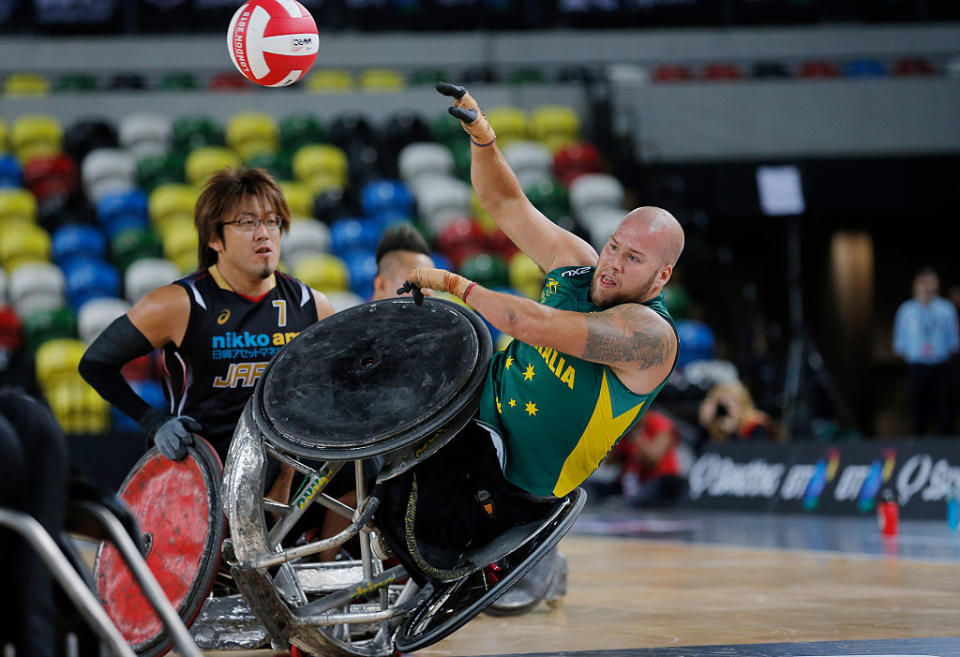'He'd make me crawl': Ryley Batt's life lesson that paved the way to wheelchair rugby greatness

Ryley Batt's father would take him to the beach, throw him on the soft sand and make him struggle down to the shore.
It might seem cruel, but it was the foundation of Batt's journey to becoming the world's best wheelchair rugby player.
Ryley Batt for PlayersVoice
It was my fourth birthday and I was hiding under my doona in tears. Mum came into the bedroom and asked what was wrong.
‘I wished for legs for my birthday,’ I said. ‘But I still don’t have any’.
Mum says it was the first time I showed an awareness that I was different. I was born without legs and there was no webbing on my hands. An operation left me with four fingers.

I wasn’t the only one who cried. When I was born, my parents and grandparents were shocked. Ultrasounds had shown that I was a perfectly normal boy.
My nan, the sweetest thing ever, said recently that, in a way, she didn’t know how to love me. It must have been hard for them. No one knew how to raise me.
They cried for a few weeks, apparently, worried I wouldn’t be able to do anything in life. Then they made a decision to raise me as a normal boy and that, I think, is what set me on the path to where I am today.
It wasn’t an easy process. I remember, as a kid, Dad would take me down to the beach, he’d throw me on his back, put me in the car and then, at the beach, he’d throw me onto the soft sand and make me crawl down to the surf.
There would be all these families there watching Dad saying, ‘Go on, get yourself down to the water’, and I’d be chucking a tantrum, crawling along looking like a prawn cutlet.

It might seem like Dad was cruel. But he was a very good sportsman, a triathlete who did Ironman and played squash and did everything really well. He was always very competitive and he believed the best thing was to push me and treat me like every other little boy.
That meant we’d do things like play classic catches in the backyard. We played footy. Dad would kick the ball to me and here I am crawling around trying to jump up and take a mark.
Mum and my grandparents were right behind Dad with that approach, especially my Pop, who was a huge influence on me.
Pop bought me my first quad bike because he wanted to give me something to do with my friends. I loved riding it. I wet my pants on it because I was so young.
I’d ride past the house and ask for my sandwiches with the crust cut off and chew them while I was riding the bike. It was a huge thing for me, being treated like an average kid.
It really worked, at least when I was young. Once, I was in the car with Dad and saw a three-legged dog on the roadside. I said to Dad, ‘Look at that poor dog with only three legs’. Dad said, ‘Take a look at yourself, mate’.
There were so many times when I was a kid that I forgot about my disability and a large reason for that was the people I had around me.
I feel massive gratitude towards my parents and grandparents for taking the approach they did.
